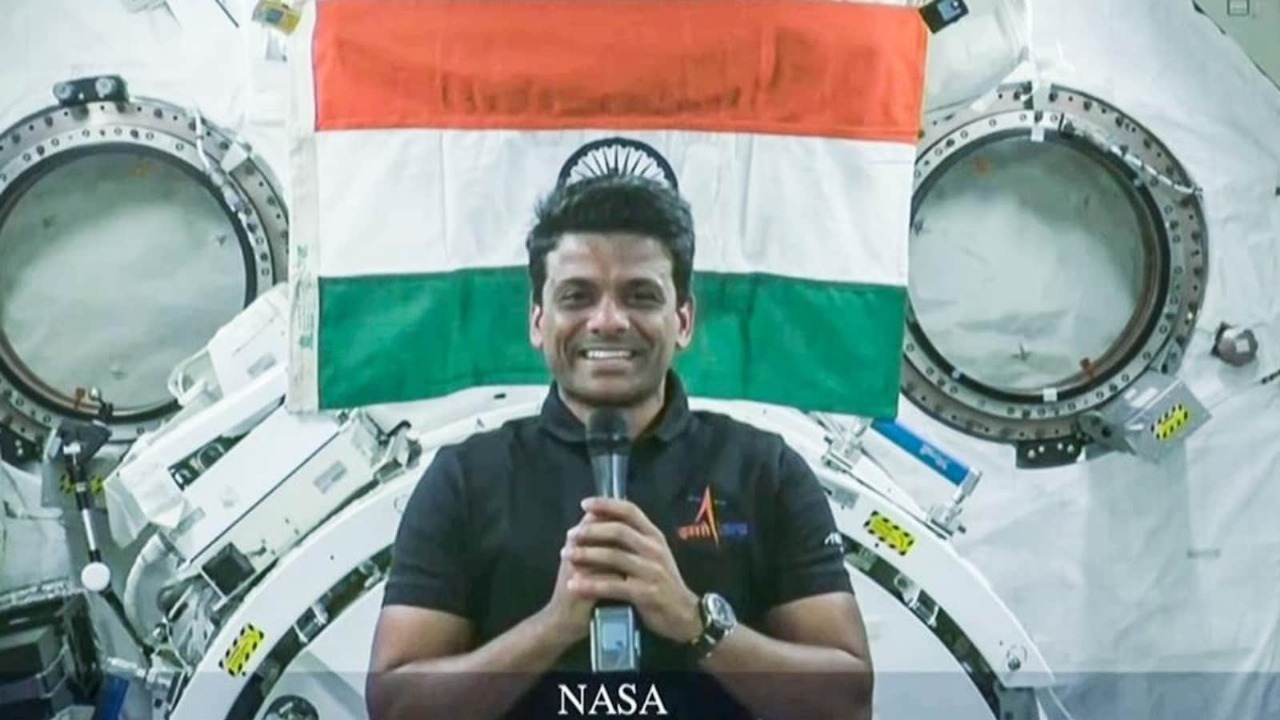In a captivating live interaction with Indian students, astronaut Shubhanshu “Shux” Shukla offered a rare glimpse into the surreal experience of sleeping aboard the International Space Station (ISS). Speaking from orbit as part of ISRO’s Vidyarthi Samvad initiative, Shukla shared humorous, heartfelt, and scientifically rich insights into life in microgravity—where the concept of day and night is replaced by a rhythm dictated by Greenwich Mean Time.
Key Takeaways From The Interaction
- Astronauts aboard the ISS witness 16 sunrises and sunsets every 24 hours due to the station’s 90-minute orbit around Earth
- Sleep schedules are regulated by GMT, not sunlight, requiring astronauts to rely on routine rather than natural cues
- Sleeping is considered one of the most difficult tasks in space, as excitement and activity often override fatigue
- Astronauts sleep in floating sleeping bags tethered to walls or ceilings to avoid drifting across the station
- The absence of gravity means there’s no floor or ceiling—astronauts can sleep in any orientation
Daily Life And Adaptation In Microgravity
- Shukla described the sensation of “swimming in air,” noting that the body takes time to adjust to weightlessness
- Muscle and bone loss are common in space, so astronauts exercise daily using treadmills, cycles, and resistance machines
- The ISS is equipped with robotic arms and AI systems to assist with internal and external tasks, enhancing safety and efficiency
- Astronauts undergo rigorous training in India, Russia, and other partner countries to prepare for emergencies and off-nominal scenarios
Mental Health And Emotional Connection
- Despite the challenges, astronauts stay connected with loved ones through technology, which helps maintain emotional well-being
- Shukla emphasized the importance of teamwork and support systems in coping with isolation and stress
- Viewing Earth from the ISS remains a deeply moving experience, offering moments of reflection and awe
Inspiration For Future Explorers
- Shukla encouraged students to dream big, assuring them that many could become future astronauts
- He shared his own journey, including space sickness and adaptation, to highlight the resilience required for space travel
- The interaction was part of a broader effort to inspire young minds and promote careers in space science
Sources: India Today, The New Indian Express, Times of India, Times Now, ScooNews, MSN India, ISRO Vidyarthi Samvad Programme, Axiom Space, NASA
